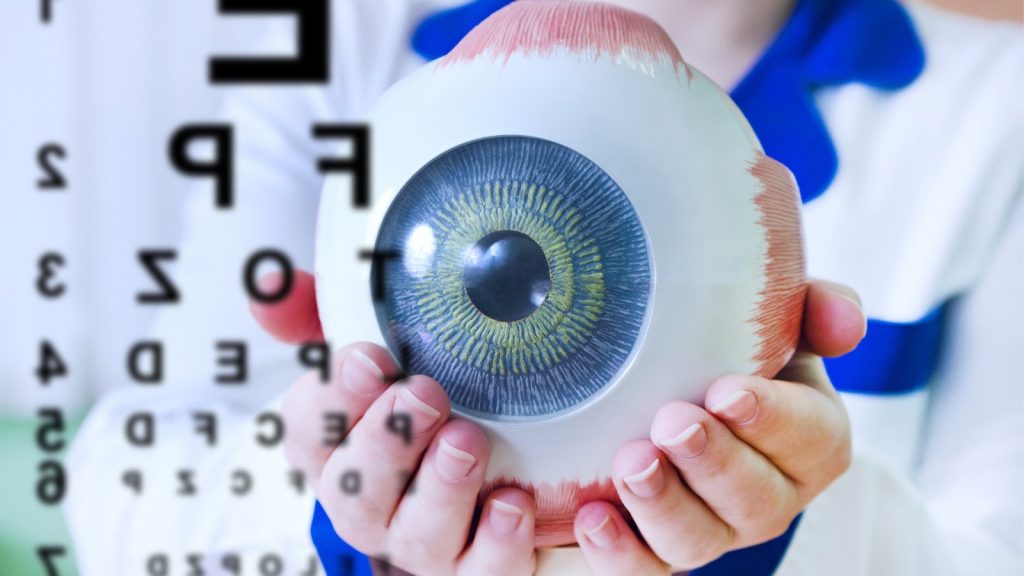Ideal Refractive Surgeries in AL: State-of-the-Art Eye Treatment
Wiki Article
Understanding the Different Eye Issues Dealt With by Specialized Eye Treatment Professionals
In the realm of eye care, specialized specialists play a vital role in identifying and dealing with a large array of eye problems. As we embark on this expedition of the various eye conditions dealt with by specialized eye treatment experts, it becomes noticeable that the elaborate web of ocular health and wellness holds a myriad of interesting understandings waiting to be discovered.Usual Refractive Errors
Refractive errors prevail visual conditions brought on by a flaw in the eye's ability to appropriately focus light, resulting in blurred vision. One of the most prevalent kinds of refractive errors include nearsightedness (nearsightedness), hyperopia (farsightedness), astigmatism, and presbyopia. Nearsightedness takes place when the eyeball is too long or the cornea is too rounded, triggering distant challenge appear fuzzy. Hyperopia, on the various other hand, takes place when the eyeball is too short or the cornea is as well flat, leading to neighboring objects being out of focus. Astigmatism is defined by an irregularly shaped cornea, leading to altered or blurred vision whatsoever ranges. Presbyopia is an age-related problem where the lens loses its adaptability, making it difficult to concentrate on close things.These refractive errors can be corrected via different methods, including spectacles, get in touch with lenses, or refractive surgical treatment. Eye care specialists play a crucial role in identifying and managing refractive errors to help people accomplish clearer vision and improve their lifestyle.
Age-Related Eye Conditions
One of the most widespread age-related eye problems is age-related macular degeneration (AMD), an illness that triggers central vision loss and can make activities like analysis and driving tough. Cataracts, another common condition among older individuals, cause clouding of the eye's natural lens, leading to obscured vision. Normal eye exams with specialized eye care professionals are crucial for early detection and administration of these age-related eye problems to preserve vision and maintain eye wellness as people grow older.Vision-Threatening Diseases
Vision-threatening illness encompass a variety of severe eye problems that have the potential to significantly impact a person's eyesight and general aesthetic feature. These conditions posture a risk of irreversible vision loss otherwise quickly identified and treated by specialized eye treatment experts. Some typical vision-threatening conditions include glaucoma, diabetic person retinopathy, age-related macular degeneration (AMD), and retinal detachment.Glaucoma is a group of eye problems that damage the optic nerve, usually as a result of high intraocular pressure, causing peripheral vision loss and potential loss of sight if left untreated. Diabetic retinopathy is an issue of diabetes that affects blood vessels in the retina, causing vision problems or blindness. AMD is a progressive problem influencing the macula, leading to main vision loss. Retinal detachment takes place this contact form when the retina divides from its underlying tissue, leading to sudden vision loss that calls for instant clinical interest (refractive surgeries in al).
Early detection, normal eye tests, and prompt treatment are vital in handling vision-threatening illness to maintain vision and keep lifestyle. Specialized eye treatment specialists play a crucial role in diagnosing, treating, and handling these problems to avoid irreversible vision loss.

Corneal Conditions
Corneal problems include a spectrum of conditions that influence the transparent front part of the eye, understood as the cornea. Therapy for corneal conditions differs depending on the these details certain problem but may consist of drugs, contact lenses, or in severe situations, corneal transplants. Normal eye tests are essential for early detection and management of corneal disorders to preserve vision and eye health and wellness.Neurological Eye Problems
Neurological eye conditions entail disorders that impact the connection between the eyes and the brain, influencing aesthetic handling and total eye feature. These problems can materialize in different means, influencing vision, eye movements, and even the coordination in between the eyes. One usual neurological eye condition is optic neuritis, identified by inflammation of the optic nerve causing vision loss, shade desaturation, and pain with eye motion.An additional significant problem why not try these out is nystagmus, where the eyes make recurring, unrestrained motions, impacting visual acuity and depth assumption. Additionally, conditions like amblyopia, usually referred to as "lazy eye," arise from uncommon aesthetic advancement in very early childhood years, leading to decreased vision in one eye.
Neurological eye problems call for specific care from specialists like neuro-ophthalmologists that have know-how in both neurology and ophthalmology. Medical diagnosis often entails a thorough eye examination, imaging studies, and collaboration with neurologists to deal with the underlying neurological issues influencing the aesthetic system. Therapy strategies can consist of medication, vision therapy, or in extreme instances, medical interventions to manage these complex problems efficiently.
Final Thought
To conclude, specialized eye treatment specialists deal with a large range of eye conditions, consisting of typical refractive mistakes, age-related eye problems, vision-threatening conditions, corneal problems, and neurological eye conditions - refractive surgeries in al. By comprehending these different conditions and seeking suitable treatment from eye treatment professionals, people can keep optimum eye health and vision. It is essential to focus on normal eye examinations and follow recommended therapy plans to preserve and safeguard one's vision for the futureReport this wiki page